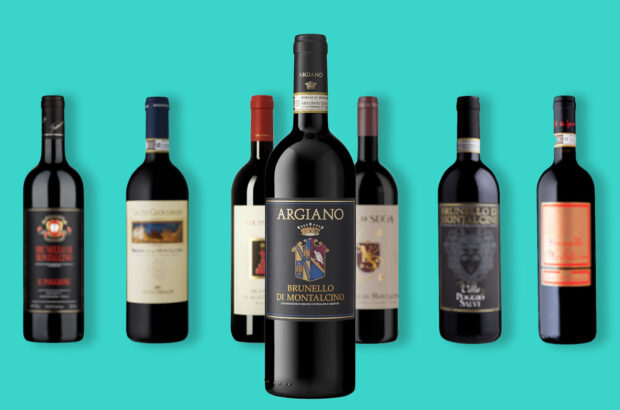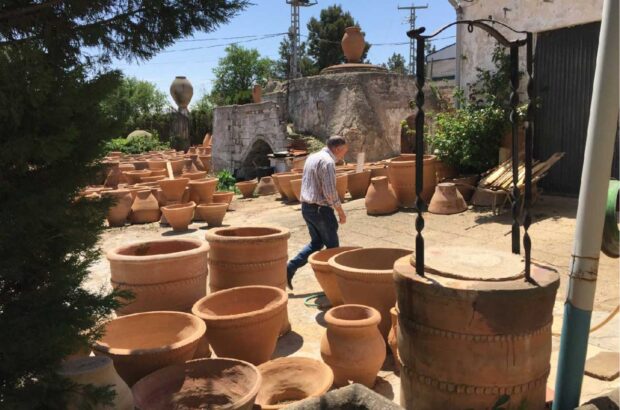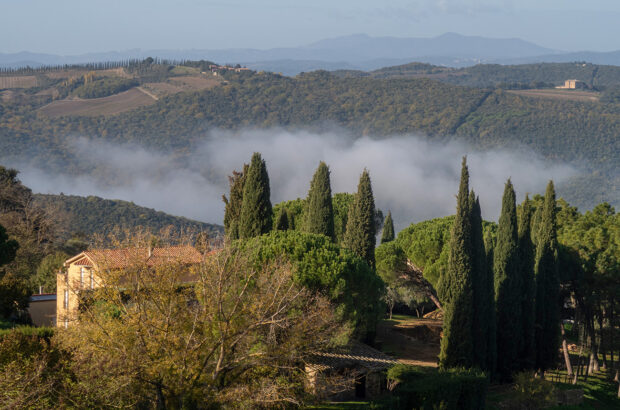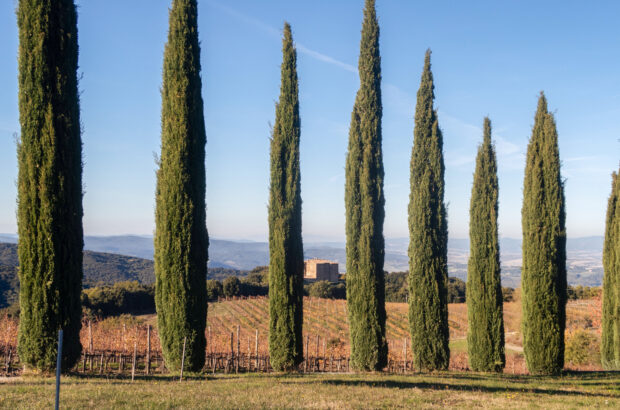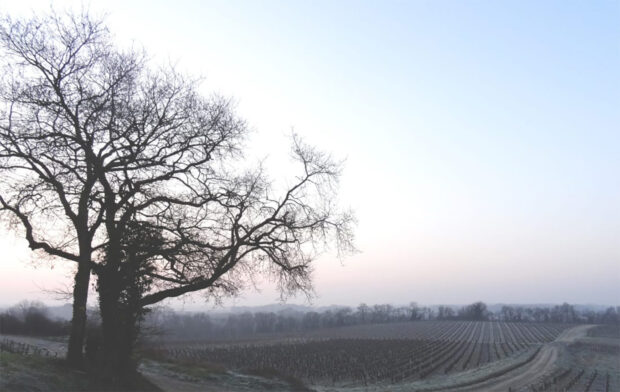Some things never change. Standing in front of the departure board at Athens airport, there is a familiar scene of terminal domestic unbliss. The giant flapper-board does its clickety click ripple leaving a swathe of ‘delayeds’, ‘cancelleds’ and ‘just can’t be bothereds’ next to every island destination, and a sea of backpacks drifts off to the bar to counter the Olympic timetable games with a cold beer booster. Classic Greece; so beautiful yet so frustrating, so oozing with potential yet so blocked by the slow ooze of inefficiency.
But there are hints that these could be the last days of the ‘old’ Greece. Olympic Airlines is on its last legs, new private companies are springing up to baffle weary locals with smiling staff and planes that leave on time, and a brand new international terminal is, unbelievably, ahead of schedule. It is still a country capable of showing absolute brilliance with one hand and complete stupidity with the other, but at least there is at last a forward momentum to the whole crazy package.
The Greek wine industry is almost a microcosm of what is happening to the country as a whole. Thanks in no small part to the seal of approval given by Oddbins, we are now at last getting glimpses of what could have been, had it not been wasting away in oxidised, gently baked limbo all these years. More important, this initiative by Britain’s most irreverent high street chain has sparked interest from the rest of the British wine trade. For years, the Greek stand at the London Wine Trade Fair has competed with the English Vineyards for lowest number of visits, but this year ‘the Steve Daniel effect’ (Daniel being buyer at Oddbins) caused a veritable flurry of activity.
And as the starting gun has gone off, so it is becoming patently obvious who the ‘serious’ premier league players are and who are most likely to drift back into domestic market obscurity. Two big names, Archaia Clauss and Chateau Carras, are the first on the casualty list and, unless changes – in personnel and attitude – are instigated, I predict some wobbly times elsewhere. Visits to Boutari and Sons and Chateau Lazaridi – both of which have the sort of financial resources other wineries can only dream of – revealed disappointing wines and a worrying lack of direction.
Whatever the excitement over what must surely be Europe’s greatest under-achiever, no one should doubt the level of challenges ahead. Vassilios Marinos, joint partner in a new wine research company called Ampelooeniki, certainly has no illusions as to the size of the task ahead. Having worked for some time at the Australian Wine Research Institute, Marinos is very aware that while Greece might be moving forward, the rate of development among its competitors is still causing the gap to widen further.
‘The major problems we are facing are the mentality of the growers – they don’t like to listen to scientists – and the fact that we know so little about our grape varieties,’ says Marinos, who has been collecting vital data for the last five years. ‘We know almost nothing about Roditis and it is one of the most widely planted grape varieties in Greece’.
Haroula Spinthiropoulou, a young female viticulturist and one of the few people doing serious field studies of Greek varieties, agrees. Of the estimated 200 different ‘wine varieties’ that are thought to exist in the country (another 70-odd table grape varieties can be added to that), she has collected about 50 in the last three years which are currently propagated in the Vitro-Hellas nursery. So if you thought what you’ve been tasting in Oddbins recently was refreshingly different from the Cab-Chard norm, your tastebuds ain’t seen nothing yet.
Richard Neill’s top five wineries
Canava Argyrou (Santorini)
The day I tasted wine at Yannis Argyros’ small Santorini winery, a constant procession of leather-faced locals arrived to get a weekly fill-up. One poked his nose around the corner of the room we were in and on seeing a pale-legged Englishman going week at the knees over a 1974 Vinsanto, he just shrugged and said ‘that’s a woman’s drink’. Hopefully, if this island’s menfolk remain as non-PC in their attitude, we Brits might still have a chance of getting some of this divine elixir. Argyros – who used to commute between decorating jobs on Athens building sites and his island winery – produces the sort of wines that make a mockery of his lack of recognition. His basic white (a blend of Assyrtiko, Athiri and Aidani) is a green-tinged, tightly structured corker of a wine but it is the mahogany coloured Vinsanto that lingers in the mind even longer than the splendours of the Caldera.
Gaia Wines
Unbeknown to the old men of Koutsi village who pass the time sipping gritty coffee and twirling worry beads, their local commune is about to become the centre of a bitter dispute. A local winemaker has proposed to the government that Koutsi should become a special ‘cru’ to help distinguish its ‘High Nemea’ wines from the lesser quality ‘Lower Nemea’ wines. With pride and financial reward at stake, a nasty battle is just around the corner, but the charismatic Yannis Paraskevopoulos is more concerned about garnering international recognition for Nemea than what his neighbours think of him. This ex-Boutari winemaker not only has the sort of energy and vision that the Greek wine industry desperately needs but he has that Australian-style ‘give it a go’ ethic that guarantees Gaia wines will always be challenging and innovative. His lavender-scented, new-wave Retsina completely confounds stereotypical perceptions of this much-maligned drink.
Domaine Gerovassiliou (Epanomi)
Evangelos Gerovassiliou could easily sell all his wine in Greece at higher prices than he gets in the UK but, like a number of wineries, he has put the common cause ahead of individual rewards. And for Team Greece, it is absolutely vital that this Bordeaux graduate – one of Monsieur Peynaud’s favourite students – is represented in the UK. Not only is this the best range of wines in Greece, it is one of the best range of wines I have tasted this year, period. I would love to tell you more about the man, but shortly after shaking his hand, he had to rush off to see his bank manager in Thessalonika to get a loan for his new visitor’s centre and cellar. If you still have the same opinion of Greek whites after tasting his Sauvignon Blanc Fumé and barrel-fermented Viognier, then I guess I must be preaching to the unconvertible.
Ktima Kyr-Yianni (Naoussa)
The parting of the Boutari wine dynasty has left the more visionary and passionate (in wine terms) of the two running his own single estate in the hills above the town of Naoussa. Yanni Boutari has the sort of weary expression of someone on the verge of a deep sleep (not perhaps surprising given the colourful life this man has led), but behind those heavy eyelids is an incredibly sharp brain and an ambition that refuses to wane. His Yannacohori Estate – divided into 32 sections – is a model of experimentation and forward planning. Unafraid of the criticism aimed at those using non-indigenous grapes, Boutari (and his dynamic young winemaker Angelos Iatridis) have settled on Merlot and Syrah as the best blending components to soften out the tough edges of Xynomavro.
Parparoussis (Peloponnese)
Arthanassios Parparoussis is a quiet, unassuming man who lets his stunning range of Peloponnese wines spell out his passion for his craft. His Roditis 1998 was one of the most intense and lengthy whites (based on this varietal) I’ve tried, and his barrel-fermented blend of Assyrtiko and Athiri is an inspired match. But top marks go to a Nemea Reserve 1994 that absolutely stormed out of the glass with Morello cherries, eucalyptus and mint, ending with an almost Italianate bitter astringency. This relatively unknown boutique winery will not be unknown for much longer.
Chasing hard for promotion
Antonopoulos
The great Constantine Antonopoulos would not only be proud of what the owner’s cousins Yannis and Nikos Halikias (and oenologist Tassos Drossiadis) have achieved in the years since his tragic death, but he would also be looking at the modern style wines disappearing off Oddbins’ shelves and saying, ‘I told you so’. If I have a quibble about the Antonopoulos wines it is the tendency to over-oak, but the new 1998 barrel-fermented Chardonnay shows much better integration and, with a bit of bottle age, it has the potential to be stunning white wine. The wine to buy is the green-tinged Adoli Ghis 1998 – a truly idiosyncratic wine with lovely fragrant aromas and knife-edge refreshing bitterness.
Domaine Constantin Lazaridi
Like his brother Nikos’ showy Napa-style winery that faces him a few miles away, Constantin (Kostas) Lazaridi has spent extravagantly on aesthetics. There can’t be many wineries that can boast a marble floor in the barrel room. But, unlike the disappointing wines of Chateau Lazaridi, Kostas – thanks to hiring the talented winemaker Vassilis Tsatskarlis – is delivering the liquid goods. Watch out for the 1998 vintage of Chateau Julia Merlot and (as a result of Mr Daniel’s badgering) the excellent ‘unfiltered’ 1997 vintage of their premium Cabernet called Amethystos Cava.
Domaine Mercouri
Until the late 1980s most of the fruit from this estate close to Olympia was sold in bulk, but with oenologist George Alexopoulos at the helm, Domaine Mercouri wines – in particular the excellent red now imported into the UK by Oddbins – now has something of a cult following within Greece. They are experimenting with both indigenous and non-Greek varieties, so expect an eclectic range in the future.
Strofilia
The three ex-engineer owners of Strofilia (responsible for setting up the first wine bar in Athens) have come a long way from their initial blind fumblings in the wine world. When they started the operation in the early 1980s, they used hand presses; temperature control involved wrapping wet clothes around the tanks and praying for wind, and they nearly lost the vineyard due to using a German viticulture manual. But they have persevered, and their openness to change and new ideas are bringing better quality every year. So far their whites (particularly the Assyrtiko-based Nafsika label) impress more than the reds.
Oenoforos
Even after only half an hour with the shy, modest Angelos Rouvalis (he barely spoke a word during our tasting) it was clear I’d met one the great talents of the Peloponnese. Having worked in a wine laboratory for many years, he has an encyclopedic knowledge of Greek wines and growers, and takes his grapes from various north-facing vineyards of varying altitudes overlooking the Gulf of Corinth. Best wines: Asprolithi 1998 (made from Roditis) is a piercing, bone-dry wine, with some lovely smokey touches, and his Cabernet Sauvignon from young vines shows great promise.
Tselepos Estate
If Mantinia eventually gets the recognition it deserves it will largely be due to the quiet, determined efforts of Dijon graduate Yannis Tselepos. Matching New World winery technology with an Old World belief in vineyard site selection, his wines reflect this mix and still taste absolutely 100% Greek. His Mantinia (in Oddbins) is a fragrant gem of a wine that absolutely sings with pure, clean flavours.
Sigalas
Maths teacher and artisan winemaker Paris Sigalas only survived the difficult times running an isolated under-funded winery on Santorini by selling a lot of wine to his friends and relatives. Now (with exports to New York) he is getting to the stage where even family might soon have to get in the allocation line. 1999 was his first vintage in a new winery (the old one was under the house), and providing Maths doesn’t become the most popular subject on the island, we can expect further jumps in quality.







